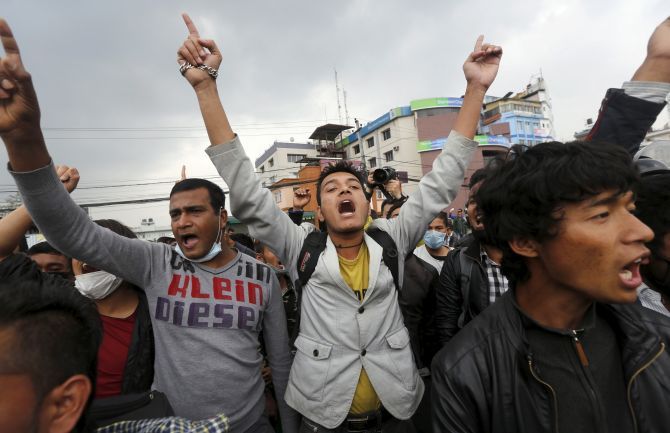
Nepalese Prime Minister Sushil Koirala was greeted with protests on Wednesday at in relief camps as anger spilled over to the streets with people seizing food and water supplies, four days after a devastating quake claimed over 5,000 lives.
People vented their anger when the prime minister visited their camps to assess relief work and complained that they were not getting any aid. Koirala told them that he had come to see for himself the difficult situation Nepal is faced with and assured them that help would reach them at the earliest.
Thousands of desperate Nepalese, who have been staying in the open with no houses to return to and fearing more devastation from aftershocks, clashed with police and seized water-bottles and other essential supplies.
Frayed tempers were also witnessed at the main bus station where quake victims had gathered to get out of Kathmandu but the promised buses failed to arrive. Scuffles broke out between angry crowds and the riot police which arrived there to control the situation.
Over 5,000 bodies have so far been pulled out from under mounds of debris and rubble left by razed homes and buildings in Saturday's 7.9-magnitude temblor, Deputy Prime Minister Bam Dev Gautam said.
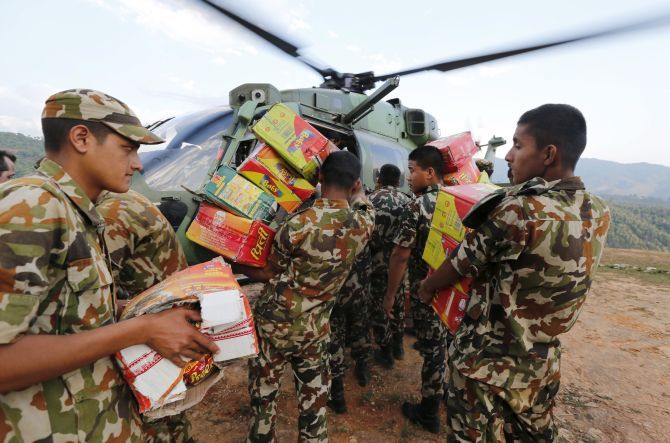
On Tuesday, Koirala had said the toll could reach 10,000 because information from the affected remote villages is yet to come.
More than 11,000 people have been injured in the quake, the worst in over 80 years.
Rescuers are still struggling to reach remote mountainous areas in the Himalayan nation, where relief efforts have been hampered by heavy rain and landslide even as global help poured in.
Officials warned that they faced problems in getting aid into the country and then delivering it to some of the remote communities in desperate need in Nepal.
"We've been left starving in the cold and the best this government can give us is this queue. Why are they so slow?" said Rajana, who goes by only one name.
"I keep hearing on the news that all governments and aid agencies are here, but where are they? Our government is totally absent. Forget shelter, they couldn't even give us water," she said as she queued up along with many others for a bus to her native village.
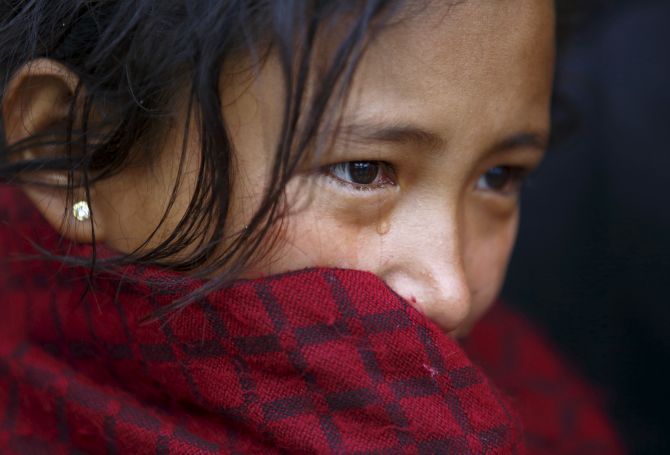
A government spokesman said that helicopters had been dropping tents, dry food and medicine to remote villages but they were yet to reach many isolated communities.
When helicopters managed to land, they are often mobbed by villagers pleading for food and water, or to be evacuated.
Nepal has declared three days of mourning for the victims of Saturday's earthquake.
The rescuers gave yet to reach some of the worst-hit villages in Gorkha, Dhading, Sindhupalchok, Kavre and Nuwakot, among other districts.
Nepalese riot police battled to contain anger among survivors of an earthquake.
Meanwhile, India said it is focusing on Kathmandu and the worst-affected Gorkha district for its rescue and relief efforts in the quake-hit country.
"India has focused its assistance in two parts of Nepal. The first one is the capital, Kathmandu, and the second one is Gorkha district which was epicentre of the earthquake," Indian Ambassador to Nepal Ranjit Rae said.
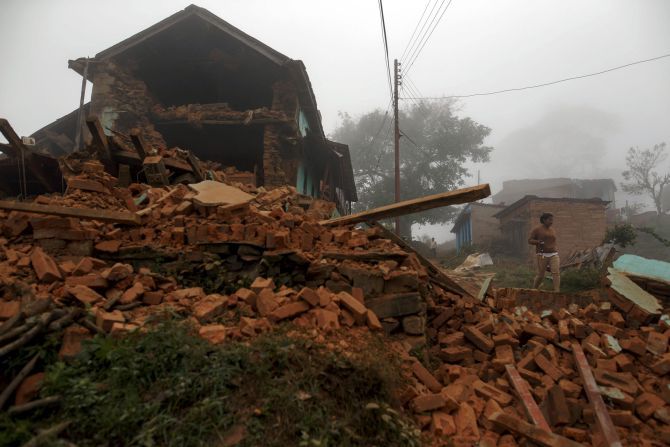
Over 500 personnel from NDRF are currently in Nepal to carry out the rescue operations.
"We are fully committed to help government of Nepal in this gigantic disaster. We express our solidarity with the people in this tragic moment and will continue our cooperation towards the government of Nepal as long as it is required," Rae said.
Dinesh Bhattarai, Foreign Affairs Advisor to Nepal prime minister, said: "It is helping and the challenge is to take more relief materials to the affected people and areas and that has been our challenge. We have constituted committees and they are working very hard in some of the areas which are not accessible.
"We are grateful to them (India) for their help on this crisis hour. A friend in need is a friend indeed."
Despite their efforts to reach affected areas, relief works have been held back by the lack of coordination among the authorities, and the problem has exacerbated due to bad weather and geographical hindrances.
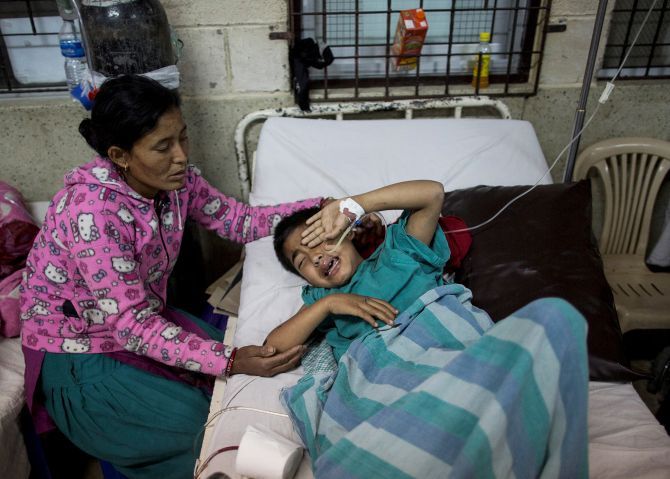
Nepal desperately needs tents, water and food supplies, Koirala told an all party meeting on Tuesday briefing the leaders on efforts to rush emergency supplies to those in need.
Till now, 15 Indians have died in the earthquake.
While many villages across Nepal are still waiting for rescue and relief teams, life in the capital, Kathmandu, is slowly returning to normal. Municipal workers on Wednesday began cleaning the streets.
Authorities in the country are now facing the daunting task of tackling post-quake challenges like spread of diseases and rehabilitation.






 © 2025
© 2025